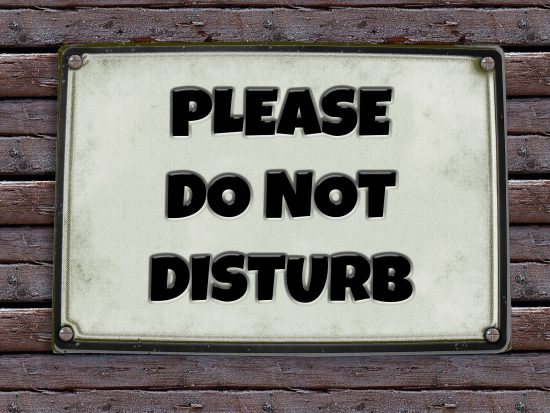
Daydreaming in your cubicle, it’s easy to get swept up in the fantasy. You imagine rolling out of bed whenever you please, leisurely sipping your coffee, and swapping a strict corporate dress code for pajamas…
Until you actually do it.
It doesn’t take long to discover that, as great as working from home can be, it also has its challenges. We aren’t used to dealing with them while working in the typical office environment.
The sooner you can overcome these challenges, the sooner you’ll be happy, productive, and profitable in your business – even in your pajamas.
Challenges That Everyone Who Works from Home Must Face
Every entrepreneur working from home is unique. Your home office looks different than mine. So do your business goals. We probably work in entirely separate industries.
With that said, the same obstacles can trip us up. Maybe you’re struggling with some of them right now.
Once we understand the most dangerous working from home pitfalls, we can brainstorm strategies to avoid them. The result? More productivity – and a lot less stress.
Let’s get started!
No Morning Routine
Image credit: the5th
Most 9 to 5 workdays are pretty similar. You wake up, shower, maybe have breakfast, and get caffeine in your system as fast as possible before your daily commute.
Everything happens in the same sequence – and at the same time – every day. It’s automatic. You grow so familiar with the routine that you don’t even need to be fully awake to do it!
It’s this strict routine that drives many of us creative types to start our own businesses. We get fed up with the monotony of the average workday. Everything feels bland. We crave something more.
When we start working from home, many of us soon discover that we’ve taken that 9 to 5 routine for granted. We might wake up, shower and eat like normal, but without a boss cracking the whip whenever we’re late, there’s no reason why we have to get working anymore.
This can lead to a sporadic, unpredictable work schedule. On days we’re motivated, we hop out of bed and work hard until the evening hours. But on all the others, we start late and don’t get much done.
One thing I’ve found to help deal with this is to set fixed working hours. I resisted this a long time because it reminded me of what I hated about corporate life. But making this routine – on my own terms – has led to so much less stress and more productivity.
I wake up at the same time as my wife every workday. Once the grooming gets done, I get dressed and “give myself a commute” by going on a walk every morning. This helps me get my mind right and prepare for the workday ahead.
By the time I get back from my walk, I’m ready to take on the day and work until my dedicated cutoff time (usually 5 or 6 pm). Because I plan exactly when I’ll be working, it’s a lot easier to schedule in fun stuff around those hours. Which leads me to…
Lack of Social Interaction
Image credit: omourya
As an introvert, I’ve never thrived on small-talk and social interaction. Getting away from gossipy coworkers was a big plus of starting my own business.
But I didn’t realize how much I missed some of those social interactions until they were gone. All that time alone at the computer, with nothing to sustain you besides virtual interactions, can really wear on you mentally.
Fortunately, there are a few ways to handle this. Even though you and your 9 to 5 friends have different careers now, most of us still eat around the same time. You could always meet up for lunch a few times a week.
Sometimes it’s good to just work with people around without necessarily talking to them. When the mood strikes me, there’s a great cafe a few blocks away that I walk to with my laptop. It’s harder to concentrate on the most demanding creative work in those situations. But a little time at the cafe is great for the afternoons or early evenings once your willpower starts to wane. It’s the perfect opportunity to take care of some admin work.
Finally, setting a strict cutoff time for your work is one of the best ways to maintain a healthy social life. That way you can actually enjoy your partner and/or kid’s company when they get home – instead of hiding behind a closed door to finish up a project last minute.
That strict cutoff time is much easier to stick to with a solid morning routine. Because a morning routine gets you started on time and productive, it’s easier to call it quits when the family is around. That’s something you might notice about these pitfalls; when you start to climb out of one of them, it’s easier to climb out of the others as well!
Digital Distractions
Image credit: DariuszSankowski
Working from home can feel like you’re in the middle of an amusement park. There are so many “rides” to tempt you. Websites, your phone, emails and text messages. How in the world are you supposed to get anything done?
An occasional distraction is fine. But when you find yourself checking Twitter every three minutes while you’re supposed to be working, the distractions can dominate your day.
This can be a huge problem. Not only do you lose the focus required to do your best work. You also extend your working hours way beyond necessary. Your workday might last 15 hours, but after all the digital distractions, you only clock three.
The easiest way to minimize these distractions? Stop relying on willpower. Even someone who is extremely disciplined will find it hard to resist a cell phone dinging two feet from their desk – especially when they’re tired and burnt out.
Instead, change your environment to promote focused, distraction-free work. You could work in dedicated time blocks and put your phone on silent (or, even better, leave it in another room) until the time is up. If you can get away without the internet for a while, unplug your router. You could also use tools like StayFocusd and Freedom to limit access to distracting websites – or block them completely – during working hours.
Getting the work done is challenging enough. You might as well stop making it harder for yourself!
People Who Don’t Take Your Schedule Seriously
Image credit: geralt
“I can’t believe you get to work in your pajamas!”
“Hey, check out this funny cat video!”
“Why didn’t you respond to my text?”
These are the kind of things you’ll hear from people who work a typical 9 to 5 job. Many of them, who have never worked from home or run their own businesses, will start treating your work time less seriously once you make the switch.
Some of these people have the impression that you’re lounging around all day. You might find them texting all day, asking for favors, or getting angry about you taking “too long” to respond to a personal email.
All of these little distractions can seriously cut into your quality work time. Most people wouldn’t put these demands on others working a 9 to 5. They also shouldn’t do it to you.
It’s hard to eliminate this completely. But one of the best things you can do is to set clear expectations. Don’t respond to casual text messages or emails unless it’s during a break or some down time that you planned. Most people will get the hint.
If you’re still getting bombarded with favor requests, you might have to get more explicit. Explain to the person, calmly but firmly, when your working hours are and why you can’t help them out. Once they know what the expectations are, they’re less likely to get frustrated. And so are you!
No Separation Between Work Life and Home Life
Image credit: Devanath
This one’s hard enough for 9 to 5 jobs. Many bosses expect their employees to check and/or respond to emails at all hours of the night.
If you work from home with your office just a few feet away, separating your work life from home life can seem nearly impossible. It’s all too easy to convince yourself you’ll just slip in and check your email one last time…
Until several hours have passed. And your partner is wondering what happened to that movie you were supposed to watch together.
Avoiding some of the other pitfalls above will help you create more separation. Having an empowering morning routine will kick off your day and get you motivated and productive. Adopting a fixed schedule – or at least a fixed cutoff time – will help you set boundaries about when you should and shouldn’t be working.
When you decide to stop working for the day, shut the door to your office and leave it that way. Even better if you can lock it from the outside! Just creating these physical barriers between yourself and work can help keep work and home separate.
You’ll also need to set colleague and client expectations. If you respond to emails after 11 pm for three nights in a row, don’t be surprised if someone freaks out when you stop doing it. But if you never respond after 5 or 6 pm until the following workday, your network will pick up on it.
It also helps to get out of the house. You’ve been cooped up in there all day anyway. Why not get away for a while and go to dinner, the park, or out for a walk?
It’s Time to Get Less Stressed (and a Lot More Productive)
There’s no reason why you can’t be happy and productive working from home. If you watch out for the pitfalls above – recognize when you’re falling into them and act quickly to get out – you can enjoy the benefits that working from home has to offer… without worrying about paying the bills.






